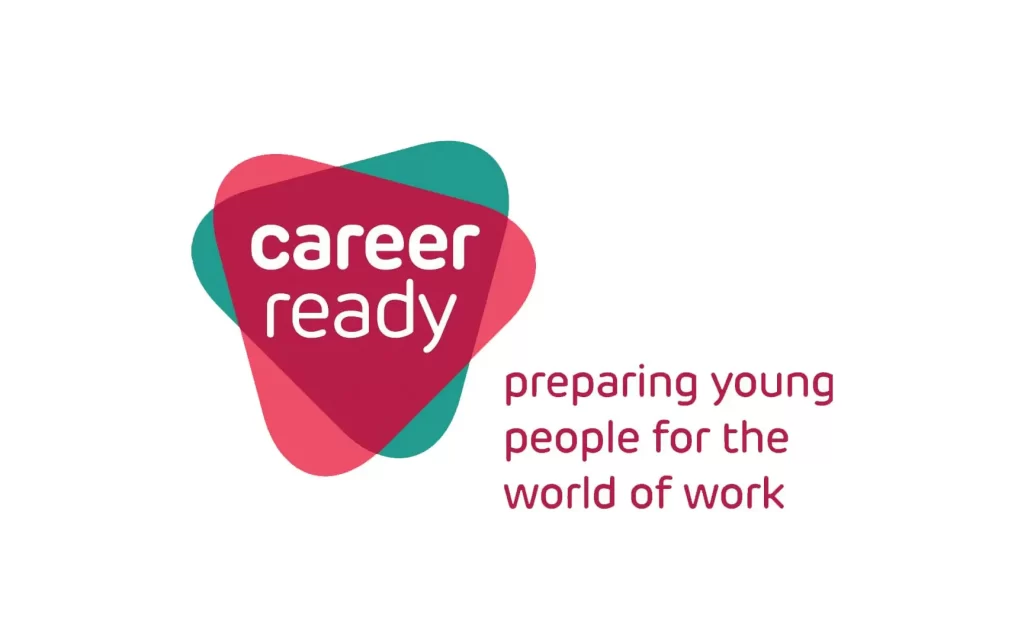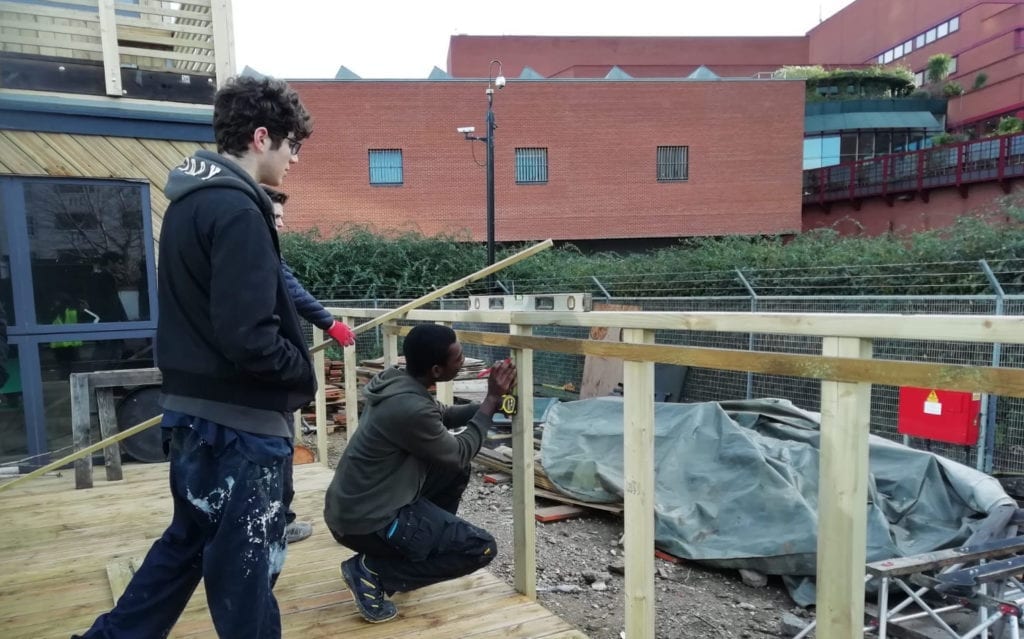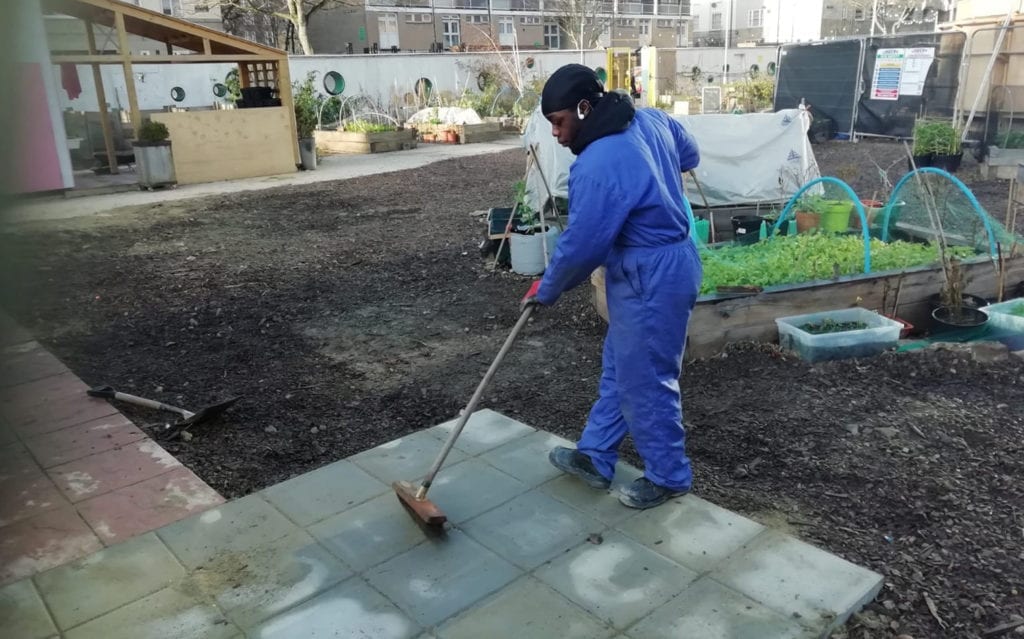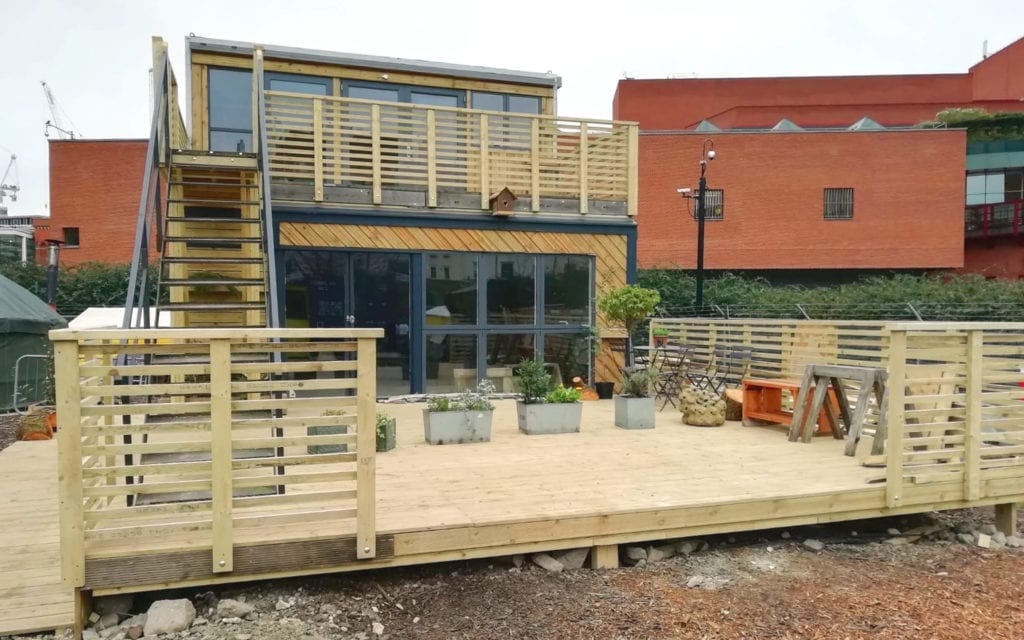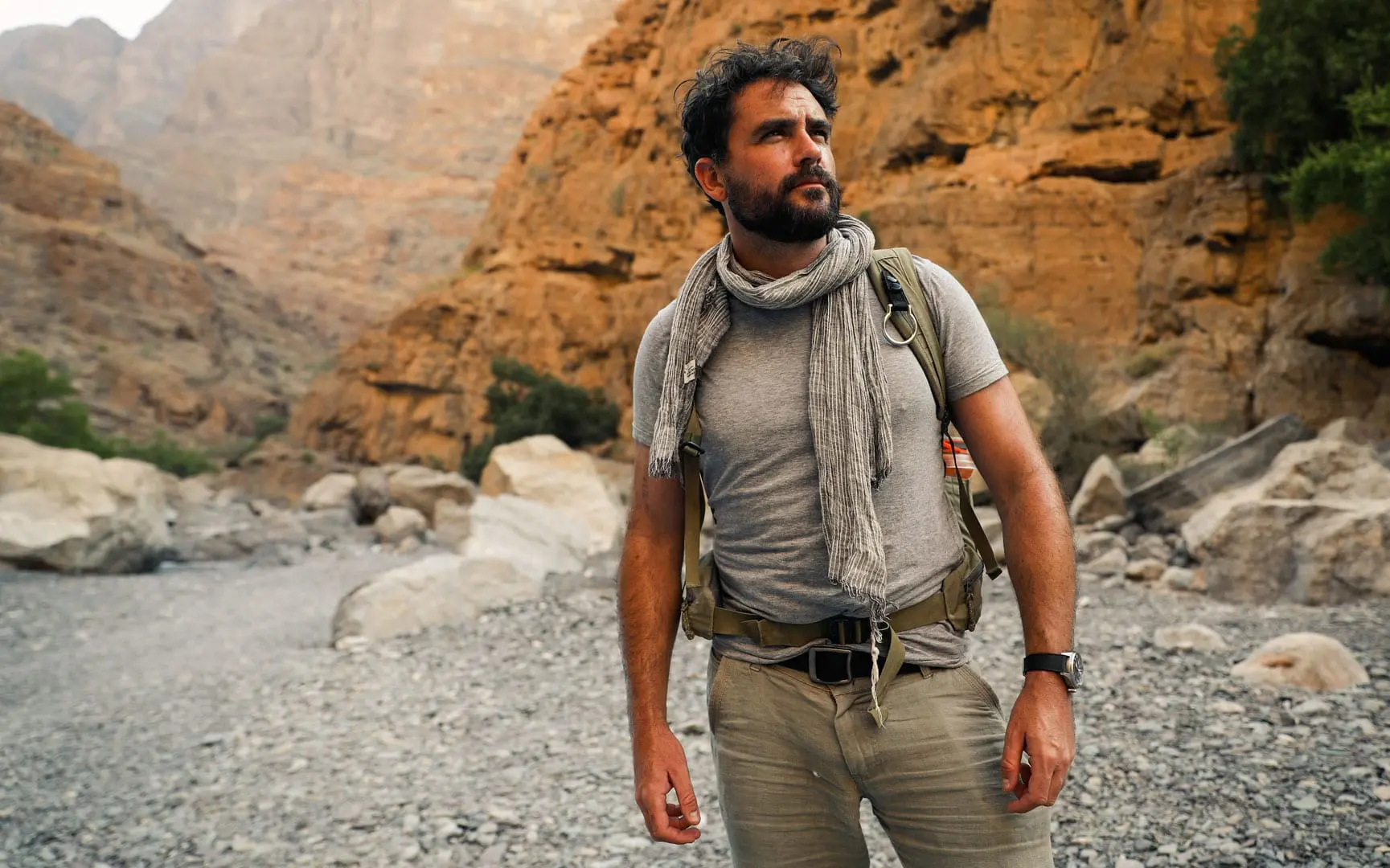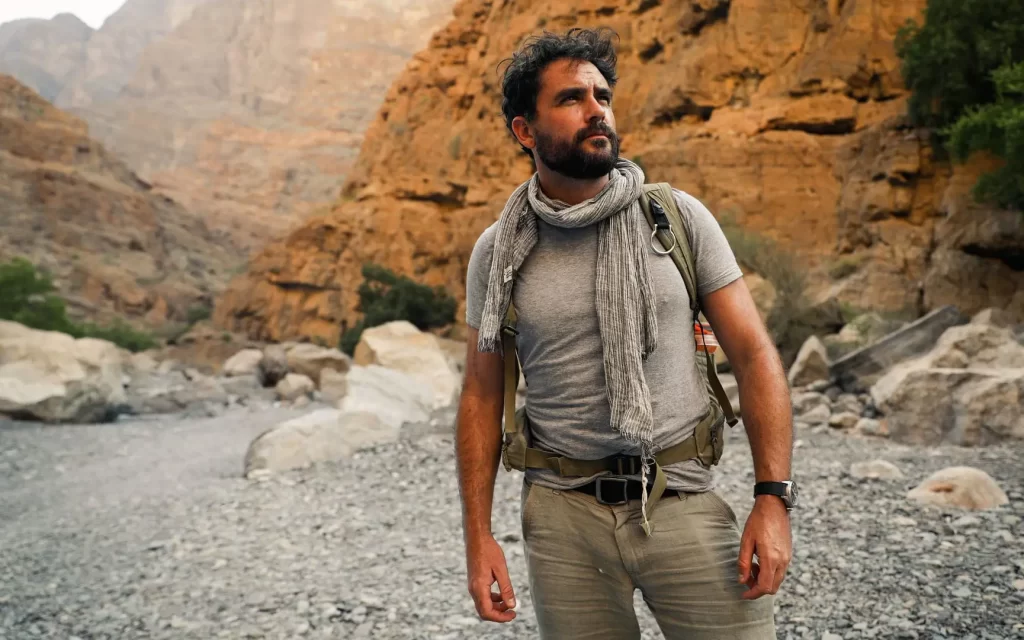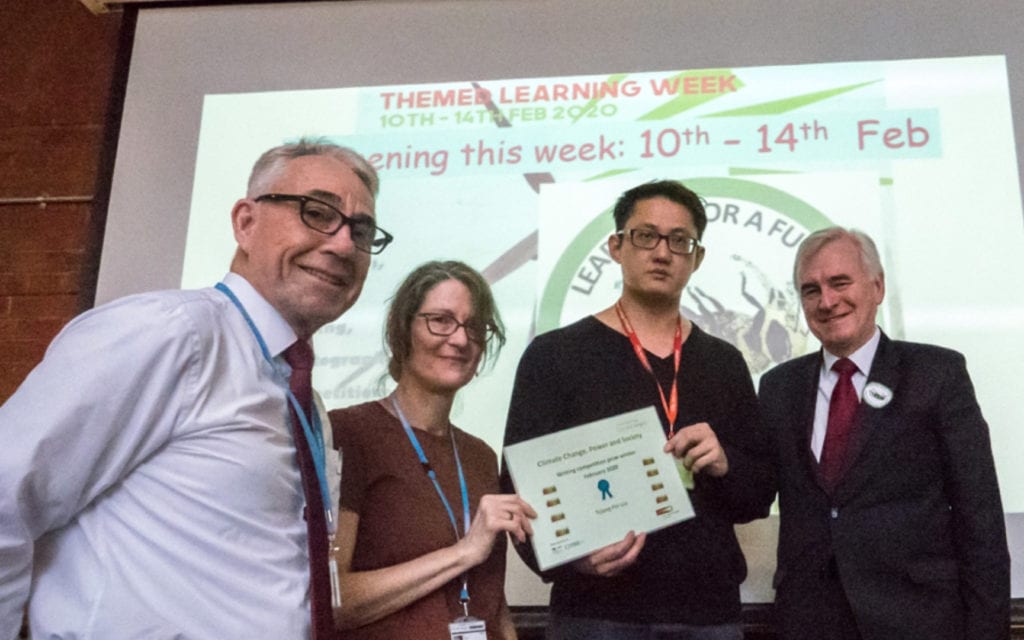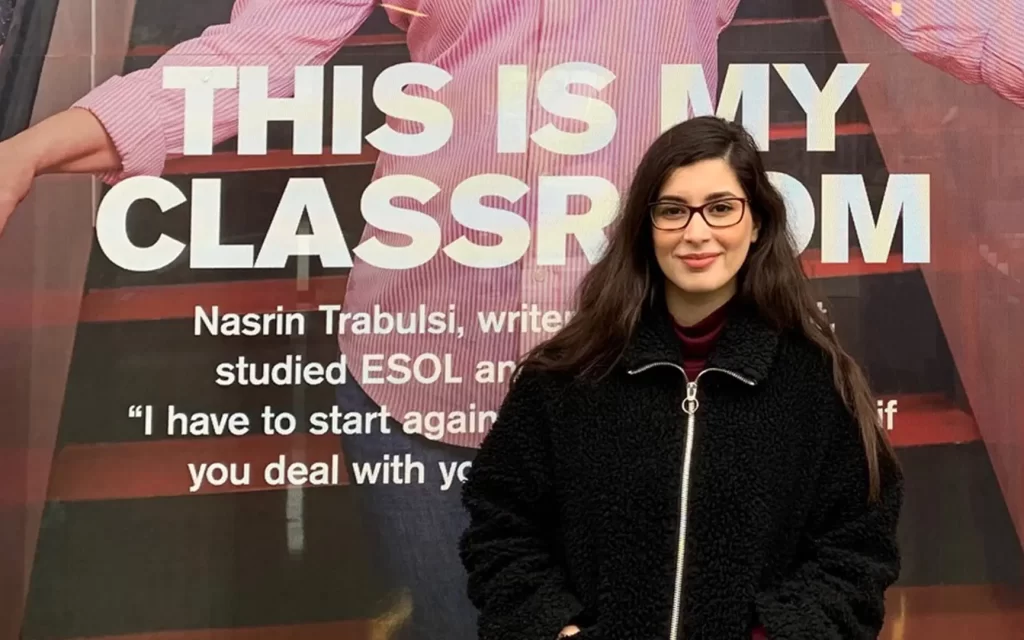An all-female team of Westminster Kingsway College Hospitality and Culinary Arts students had an unforgettable experience on Thursday 5 March, when they had the chance to showcase their skills – as well as meet the Prime Minister Boris Johnson and a galaxy of famous women – at Number 10 Downing Street.

The students prepared and served delicious canapés and drinks to 110 guests at the Prime Minister’s reception to mark International Women’s Day (#IWD2020). At the reception were leading female figures from business, science, sport and other sectors, including double Olympic gold medallist Dame Kelly Holmes, the founder of STEMettes Anne-Marie Imafidon, and Collette Roche, the chief operating officer at Manchester United Football Club. Also present were fifty secondary school girls from Year 9, who are due to make their GCSE choices.
In a panel discussion at the event, the Prime Minister and an all-female panel spoke about a range of issues, including the importance of inspiring the next generation of women into Science, Technology, Engineering and Maths (STEM) fields, and the gender pay gap.
The International Women’s Day reception is an annual event at No. 10 and this is the first year that the college has had students working at it. The team of nine students and two members of staff worked with their colleagues at our Victoria Centre’s School of Hospitality and Culinary Arts to overcome some logistical challenges before they faced the novel and high-pressure situation of serving hot food and drinks at one of the world’s most famous addresses.
As Hospitality Lecturer Lindsey Lamont explained: “No. 10 contacted us a few weeks ago asking us if we could provide the food and drinks – and the students to prepare and serve it – for their International Women’s Day reception.
“Because of the nature of the event, they wanted the team to be all-female. We also realised early on that we would need to pre-prepare the food at our Victoria Centre and transport it to Downing Street, for the team to assemble, cook and plate-up in the No. 10 kitchens – which none of us had used before.
“We are always finding ways to prepare our students for the workplaces they will be in when they graduate from the college, so we jumped at the challenge!”
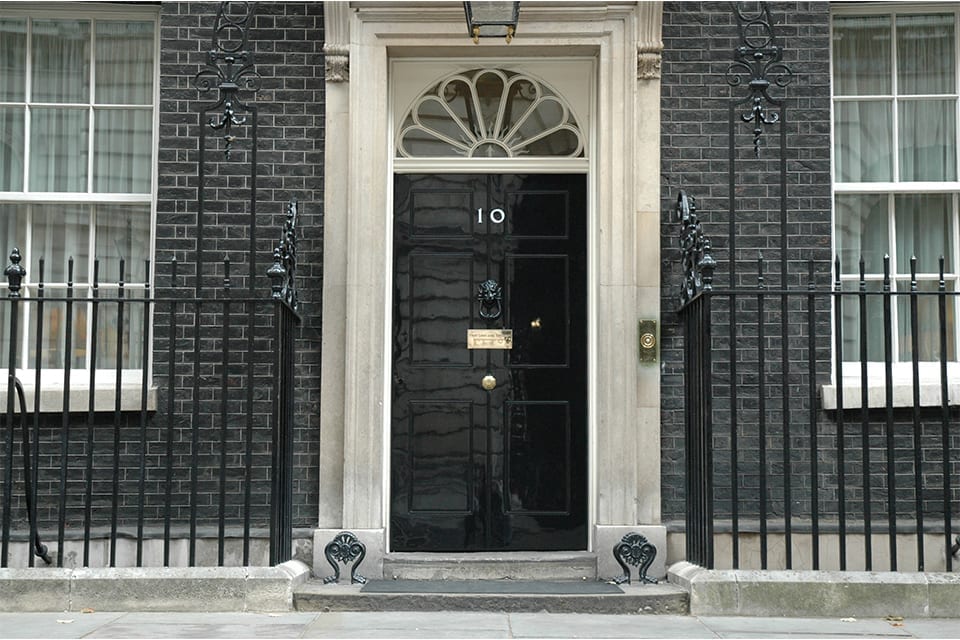
On arrival at Number 10, the students worked in two teams. The kitchen team of culinary students were mentored and supported by Chef Lecturer Miranda Godfrey; they heated and plated the food, which had been made their fellow students at the Victoria Centre. Meanwhile, the front-of-house team of Hospitality students, led by Lindsey Lamont, served drinks and the canapés to the Prime Minister and his guests.
The canapés created and served were:
Savoury
- Smoked Salmon Roulade
- Chicken Skewers with a dip
- Warm Mushroom Tart
Sweet
- Chocolate Cake with Chocolate Cremeaux
- Baked Cheesecake
- Baileys Choux Bun
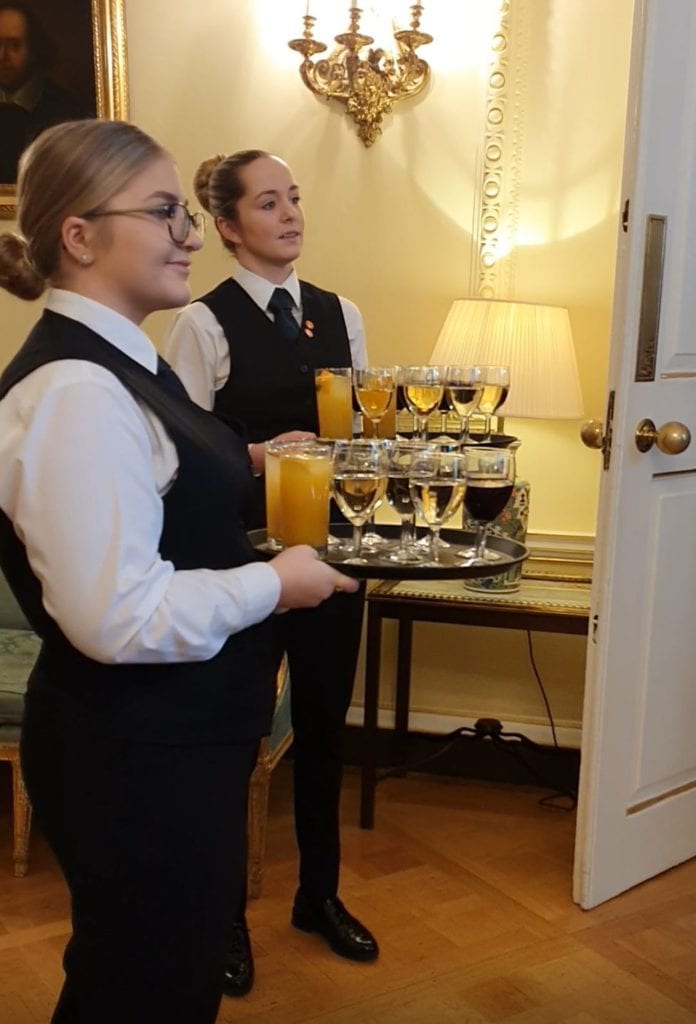
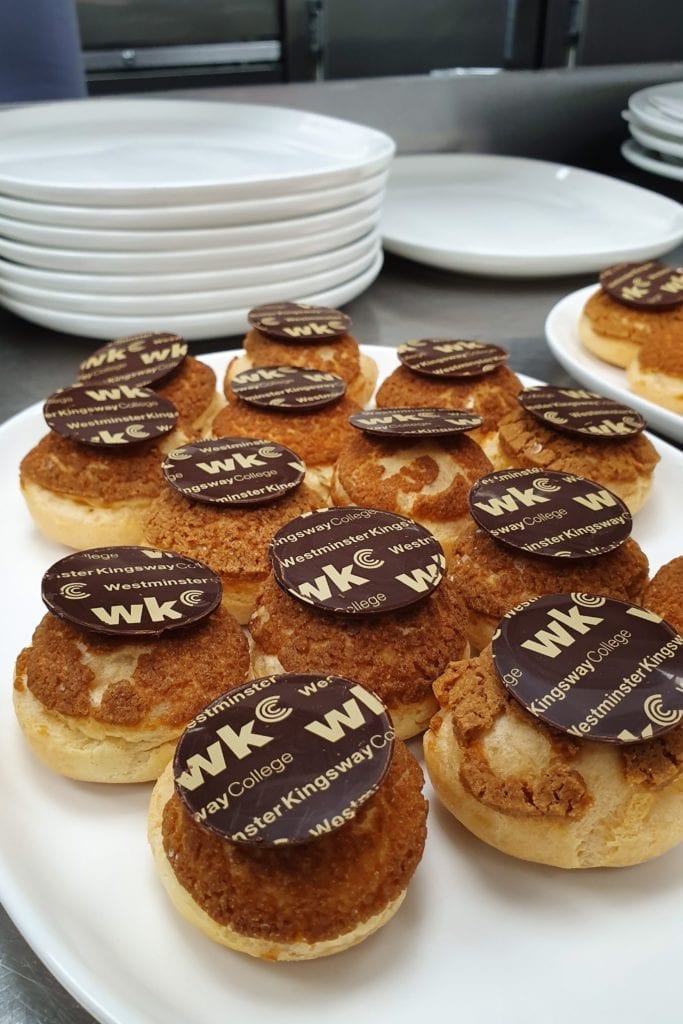
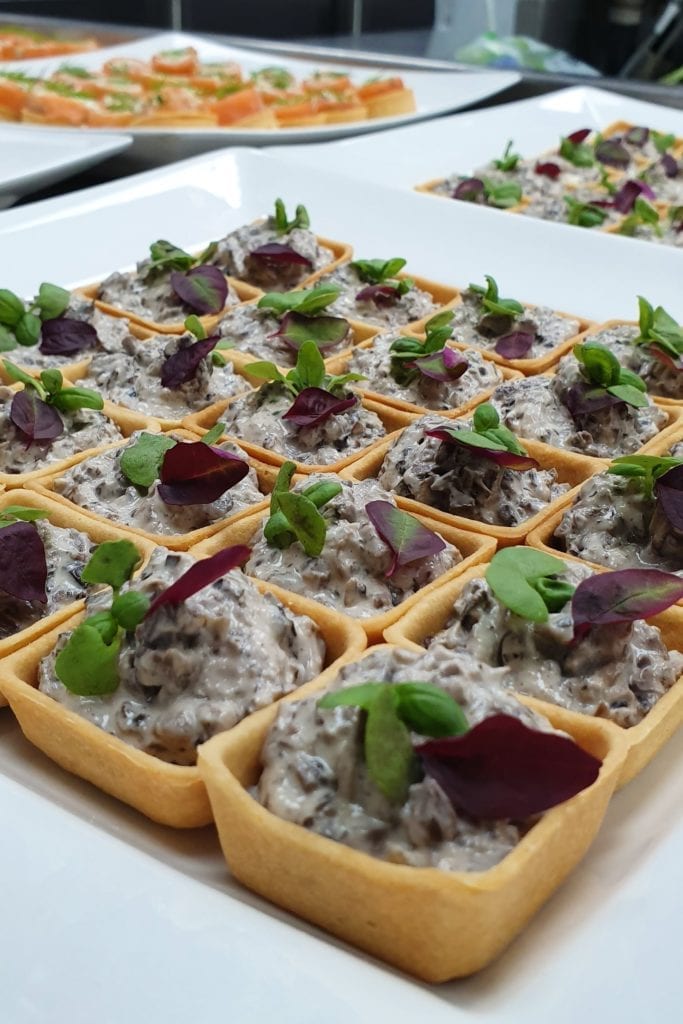
One of our Professional Chef Diploma students told us: “It was amazing experience working at 10 Downing Street. There were women and girls from all walks of life and it was wonderful to be able to meet them.”
“I’d never been to Number 10 before and it was a great experience for me and the rest of the team”, explained another student. “Although I was busy working, I was able to chat to some of the guests. Quite a few of them asked me about my course and my ambitions for when I leave college.”
Also present was Boris Johnson’s fiancé Carrie Symonds, who is expecting the couple’s first baby in the summer. One of our students who is studying Hospitality and Events told us: “It was nice to see Boris and his fiancé together at the event and great to see her supporting International Women’s Day. Carrie spent time chatting to the schoolgirls, and after the event was over, Boris came to talk to us privately. He shook all our hands and said that he’d loved the food. The whole thing was a brilliant experience.”
Hospitality Lecturer, Lindsey Lamont summed up the event: “There was such a lovely atmosphere there. It really was buzzing at the event and it was fantastic that the Prime Minister took the time to meet us and the students afterwards. We were delighted to be able to give some of our students the opportunity to work at such a high-profile event – what a thing to have on your CV! – and we hope that No. 10 will be calling on us again in the future.”
Paul Jervis, Programme Manager for the Professional Chef Diploma courses at the college, said: “This was an amazing team effort, involving a lot of people. The students were fantastic and, as the people at No. 10 told me afterwards, were real ambassadors for the college.
“Supporting them was a big team of staff and students back at our Victoria Centre, who devised, prepared and created the dishes. A big thanks to Norman Fu and his students who prepared the savoury canapés, and to Sue Yeates and her students, who did the sweet ones. I’d also like to thank everyone who held the fort back at the college, while their colleagues worked at the event.
“Our location in the heart of London and our fantastic contacts in the industry, mean that we can offer our students a host of amazing career development opportunities – not just working at big events, but also doing work placements in Michelin-starred kitchens and the opportunity to work in the college’s own high-quality public restaurants, which are rated in the top 120 of London’s 19,000 restaurants on TripAdvisor. These opportunities are one of the things that sets us apart from other culinary schools and catering colleges.”













